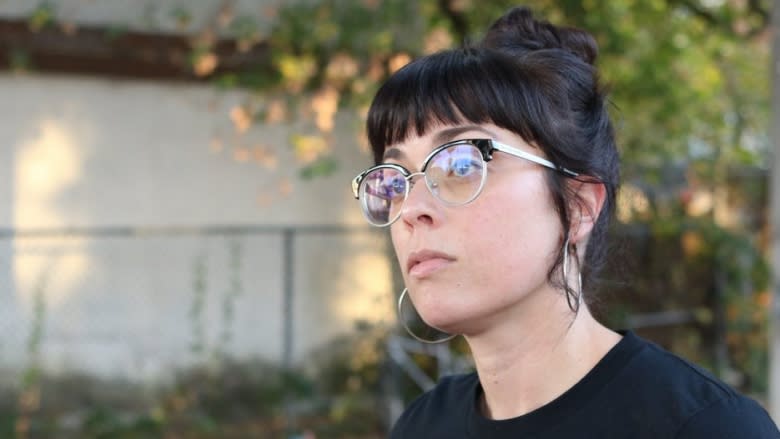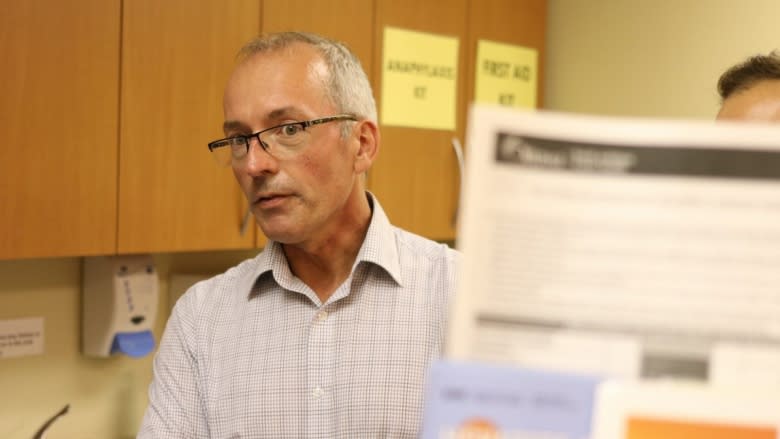City-run injection site opens Tuesday
The first city-run supervised injection site will open in the ByWard Market Tuesday afternoon to fight the growing opioid crisis, as the volunteer group that has been running an unsanctioned site only a few streets away says it will continue to operate.
Ottawa Public Health has been working with the Sandy Hill Community Health Centre to allow the city's Clarence Street clinic to operate as an interim site, using the exemption Sandy Hill received earlier this summer from Health Canada.
The supervised injection site will operate from 3 p.m. to 8 p.m., in a harm reduction clinic with an established needle exchange program.
Ottawa Public Health plans to hire and train enough staff to expand the hours of the supervised injection service to 12 hours a day, seven days a week, by Oct. 10. The site is estimated to have capacity for six clients per hour.
Dr. Isra Levy, Ottawa's chief medical officer of health, said the morning is also a time where people are at risk of overdoses.
"Ideally, I'd like to offer 24-hour service and really the key operational question is what is our staffing capacity and capability," Levy said.
There are two booths where people can come and inject drugs under the supervision of a public health nurse, who will then monitor them for the signs and symptoms of an overdose.
A second nurse will stand by in case of an overdose and offer training along with other harm reduction services that are already part of the operation of the site.
Levy wrote a memo earlier this month to the mayor, council and board of health stressing there was an "urgent and immediate need" for supervised injection services in Ottawa.
The temporary site will run using funding from Ontario's Ministry of Health and Long-Term Care that was recently announced in response to the opioid crisis.
'Both in the business of saving lives'
The interim site proposal was put forward after Overdose Prevention Ottawa opened a volunteer-staffed tent site offering supervised injection services at Lowertown's Raphael Brunet Park in late August.
Some neighbours have complained that the unsanctioned site is too close to children, takes up too much space in the park, and is operating illegally.
Marilou Gagnon, a public health nurse and volunteer with Overdose Prevention Ottawa, said her group welcomes the new site and plans to continue operating their own.
"We're not in a position right now in Ottawa [with] the overdose crisis to shut down any service," Gagnon told CBC News.
Gagnon has said both her group's site and the sanctioned Health Canada site could operate in tandem, citing the examples of other Canadian cities such as Toronto and Vancouver.
"People who use drugs in this area will be able to pick the service that fits their needs the best. Ultimately, we're both in the business of saving lives. But for some people [the OPH site] may not fit their needs," she said.
Overdose Prevention Ottawa has raised concerns about a policy at the new site that would limit people to one injection per visit within 20 minutes — as well as prohibitions on peers administering drugs and inhalation.
The pop-up tent lets people use drugs as they would on the street with the benefit of supervision and the time they need to do it safely, Gagnon said.
'Still not going to be enough'
Rob Boyd, program manager at Oasis in the Sandy Hill Community Health service, said the idea behind the 20-minute guideline is to allow more effective turnover at the site.
"That's kind of an average length of time that people take. Obviously, if there's an opportunity to allow somebody who needs more time to take more time that's fine," Boyd said.
"But if there are six people waiting to come in to use the service, that because a risk issue in terms of people then leaving and using their drugs in the community."
Sandy Hill Community Health Centre's Nelson Street location will eventually be the permanent supervised injection site, but the facility isn't expected to be open until late October.
The Clarence Street location has a 120-day window of operation, but there may eventually be an application from Ottawa Public Health to turn it into a permanent site.
Boyd said the presence of potent opioids such as fentanyl and carfentanil may require a revaluation of how many harm reduction services are needed.
"Even when we open up and even should Public Health continue to operate here, that's still not going to be enough. I think we fundamentally need to rethink how we're going to keep people safe from this toxic drug supply."



